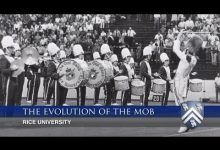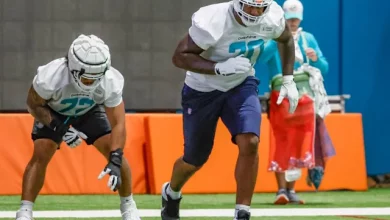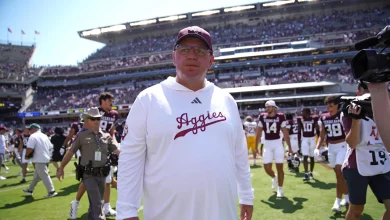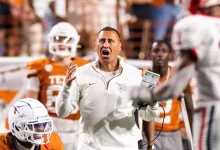Ten seasons and no Stanley Cup. Is it time for McDavid to chase a ring elsewhere?
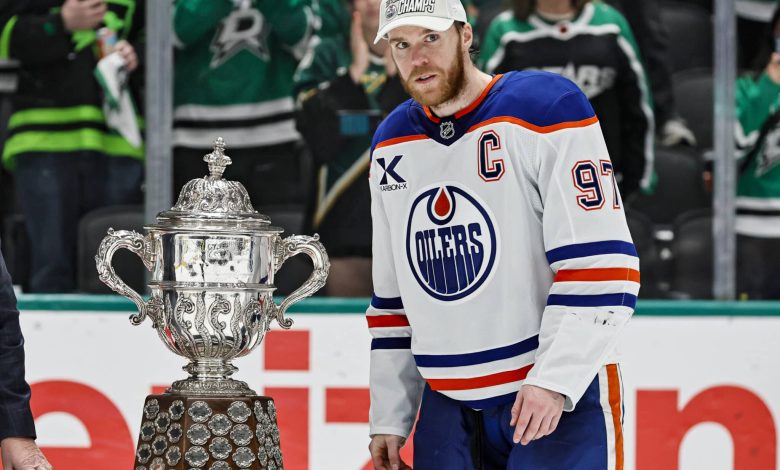
When Connor McDavid was drafted first overall by the Edmonton Oilers in 2015, the expectation was nothing short of greatness. The words “generational talent” weren’t tossed around lightly, and in McDavid’s case, they were well-earned. He was touted as the most complete prospect since Sidney Crosby, and by every measure, he’s lived up to that billing. McDavid has broken records, dazzled with speed and skill never before seen in the NHL, and redefined what it means to be an elite center in the modern game. And yet, ten seasons into his career, he still hasn’t lifted the Stanley Cup. The question many fans, pundits, and even former players are now starting to whisper—sometimes loudly—is unavoidable: is it time for McDavid to leave Edmonton to chase the championship he so clearly deserves?
It’s not an easy question. McDavid has never publicly suggested he’s unhappy in Edmonton. He’s always said the right things, led with class, and shouldered the burden of expectation with poise. When things have gone wrong—poor roster construction, goaltending struggles, defensive breakdowns, first-round exits—he has never pointed fingers. Instead, he’s returned each season more determined, more prepared, more unstoppable. In an age where many stars subtly or overtly push their way out of struggling franchises, McDavid has stayed. But patience, even from the most loyal of players, has its limits. And now, as he enters the final two years of his contract with unrestricted free agency looming in 2026, the clock is ticking louder than ever.
This latest season may have been the tipping point. McDavid, once again, was transcendent. He finished the regular season with 123 points despite battling through injuries. He added 28 points in the playoffs and carried the Oilers to the brink of a Stanley Cup, falling just short in a seven-game war against the Florida Panthers. The heartbreak was palpable. McDavid, usually composed, looked emotionally crushed after Game 7. It was a look of exhaustion, yes—but also of frustration. For the second time in three years, he had dragged his team to the final four. And for the second time, it ended without the trophy.
At 28, McDavid is entering what should be the prime of his career. He’s already won everything else—multiple Art Ross Trophies, Hart Trophies, Ted Lindsay Awards, and a unanimous place atop every NHL best-player ranking. The only thing missing is the Stanley Cup, and with each passing year, the legacy questions grow louder. For all his individual brilliance, there’s a growing narrative that he may never be remembered in the same breath as Wayne Gretzky, Mario Lemieux, or Sidney Crosby unless he adds a championship to his resume. Fair or not, rings matter in the legacy debate. And right now, McDavid’s finger is bare.
The Oilers have not failed McDavid completely. In the past few years, the organization has made moves that suggest urgency. They’ve added experienced wingers, retooled the defense, and stabilized their goaltending. The emergence of Evan Bouchard and Stuart Skinner has given the team a young, capable core behind McDavid and Leon Draisaitl. And they made a deep playoff run this year, falling one win short of the Cup. But the NHL is a league of parity. Contending one year doesn’t guarantee success the next. And in Edmonton, the margin for error has always felt razor thin.
There’s also the question of sustainability. Draisaitl has re-signed, locking in for another eight years, a huge vote of confidence in the direction of the franchise. But around them, aging contracts, cap limitations, and roster inconsistency persist. Zach Hyman is entering his 30s. Ryan Nugent-Hopkins, a lifelong Oiler, is locked in but showing signs of decline. Darnell Nurse’s $9.25 million cap hit continues to restrict flexibility, and outside of a few bright spots, the team’s prospect pool lacks elite depth. If McDavid looks around the locker room and sees a core capable of contending, it’s only fair that he also sees a closing window. Championship teams usually get younger as they ascend. Edmonton is doing the opposite.
The Oilers’ management understands the stakes. New GM Stan Bowman has made it clear that his primary mission is keeping McDavid in Edmonton long-term. But Bowman also inherits a complex situation. He must convince McDavid that staying in Edmonton offers the best path to a Cup, not just sentimentally, but structurally. That may mean making tough choices—buying out contracts, moving on from longtime contributors, and building with ruthless efficiency. McDavid has shown loyalty, but loyalty alone doesn’t win titles. Even the most committed players want to see results. And after a decade, patience can begin to look a lot like regret.
If McDavid were to explore other options, the interest would be unprecedented. Every franchise in the league would line up with trade proposals or cap space to offer. In today’s NHL, where superstars rarely hit the open market in their prime, McDavid would become the most sought-after free agent in hockey history. Teams with cap room and strong cores—Los Angeles, Colorado, New Jersey, and even his hometown Toronto—would instantly become frontrunners. He could pair with other elite talent, play in a major media market, or simply choose an organization with a proven history of turning elite players into champions. He wouldn’t be a rental. He’d be a franchise-changer.
Of course, McDavid’s departure would send shockwaves through Edmonton. The idea of him leaving is unthinkable to many in Oil Country. He’s not just the face of the team; he’s the heart of a hockey city. Children wear his jersey by the thousands. Adults see him as a once-in-a-lifetime talent. To lose him—especially without a Cup—would be a wound deeper than any playoff defeat. It would be a legacy-altering moment not just for the franchise, but for the league.
But it wouldn’t be betrayal. It would be business. It would be McDavid doing what almost every great athlete eventually does—taking control of his destiny. No one questioned Ray Bourque when he left Boston for Colorado and won a Cup. No one begrudged Joe Thornton for leaving Boston or Jarome Iginla for chasing rings late in his career. Sidney Crosby stayed in Pittsburgh because the Penguins delivered him three Cups. If they hadn’t, who’s to say he wouldn’t have looked elsewhere too?
The truth is, McDavid deserves a Stanley Cup. His brilliance demands it. His work ethic, humility, and excellence are qualities any organization would be lucky to have. He has given Edmonton everything—time, talent, and belief. If he decides, in the summer of 2026, that it’s time to write the next chapter elsewhere, it won’t be because he quit on the Oilers. It will be because the clock ran out.
Still, there’s hope. The Oilers were close this year—painfully close. A bounce here, a post there, and McDavid might be lifting the Cup instead of staring blankly at the confetti falling around him. Bowman has time to make moves, improve the roster, and re-pitch the vision. Draisaitl’s return ensures at least two more years of one of the most lethal tandems in hockey. If the Oilers can capture the Cup in that window, McDavid might not just stay—he might re-sign for life.
But it’s no longer just about “what if.” It’s about “what now.” McDavid has two seasons left before free agency. That gives Edmonton one more shot—maybe two—to prove they can win with him. Not just make the playoffs. Not just contend. But win it all. Otherwise, the whispers will become roars. The question—”Is it time to leave?”—will no longer be hypothetical.
For now, McDavid remains quiet. Focused. Committed. But the NHL, like time, doesn’t wait forever. And the greatest player of this era deserves more than admiration and highlight reels. He deserves a ring.
If he has to go somewhere else to get it, no one should stand in his way.

